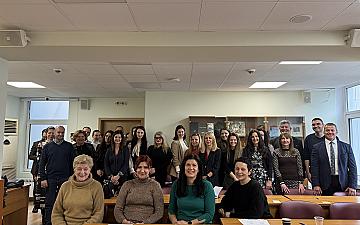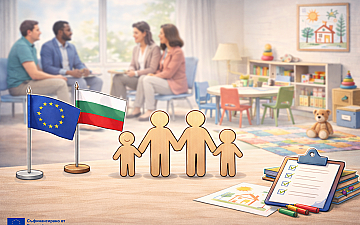Migrants’ reception in the European Union has become a particularly topical subject in the face of the COVID-19 pandemic and related financial and economic difficulties, as well as fundamental rights concerns. The number of people experiencing difficult conditions increases day by day and the pandemic outbreak has severely affected migrants and asylum seekers by obstructing the access to primary services and basic sanitary facilities. During these extraordinary circumstances, the European Union is acting strongly to guarantee the voluntary relocation of unaccompanied children within the Member States of the European Union. This is executed through the adoption of the Action Plan for immediate measures to support Greece presented in March 2020, with a commitment to address the immediate challenges faced by Greece and monitor developments in neighbouring countries like Bulgaria and Cyprus. A number of migrant support organisations have called for urgent action in view of alleged violations of children’s rights and threats to their health and safety across the refugee hotspots, despite the significant efforts by the Greek authorities and NGOs.
The European Commission called upon Member States to cooperate and collaborate by ensuring the relocation from the Greek islands camps specifically of unaccompanied minors trapped in unfavorable living conditions. A number of countries have expressly made known their commitment to receive them – Belgium, Bulgaria, France, Croatia, Finland, Germany, Ireland, Lithuania, Luxembourg, Portugal, and Switzerland. Luxembourg was the first country to relocate 12 unaccompanied children from Greece on 15 April 2020, while Germany received another 58 children. Children have been quarantined for 14 days and in both countries immediate support has been offered and provided by Caritas.
Caritas has urged EU Member States to follow the lead of Germany and Luxembourg. Places have been pledged for over 1500 unaccompanied minors on the Greek islands to be relocated. A joint action is considered necessary not only to deliver on promises made by some Member States but also to encourage the other Member States to make their contribution pursuant to the spirit of European solidarity.
In terms of reactions throughout the pledging Member States, a communication issued by the Finnish government expresses the intention of Finland to host up to 175 asylum seekers coming from Italy, Cyprus, Greece and Malta. However, according to another statement from the beginning of April, the restrictions on movement between different countries due to the coronavirus epidemic were slowing the relocation of asylum seekers and, once a decision has been made on the persons to be relocated, the process would begin as soon as practically possible. Furthermore, France plans to receive 750 asylum seekers including 350 unaccompanied minors, starting from July 2020, while Belgium has been strongly urged to follow Germany and Luxembourg’s example.
Other EU countries face specific drawbacks in actively contributing to this collaborative effort. For example,Bulgarian NGOs have claimed that Bulgarian government has not yet publicized nationally its intention to receive relocated children, while Croatia’s reception has allegedly been troubled by right-wing publications instilling fears of infiltration of extremists under the guise of children’s relatives. Lithuania has delayed the relocation to its territory until the end of anti-pandemic measures.
Despite all these drawbacks, the EU strives to ensure a better future for unaccompanied minors, actively sharing responsibilities and assisting Greece and other first reception countries in dealing with migration flows.








